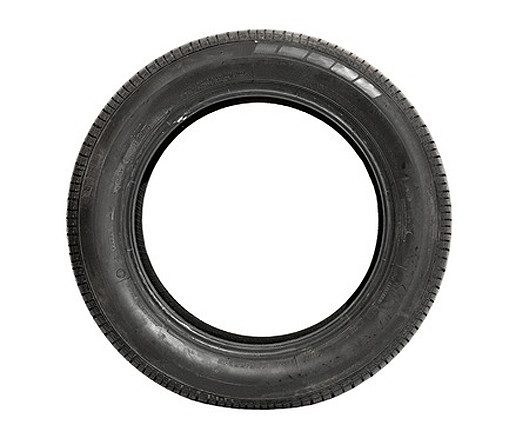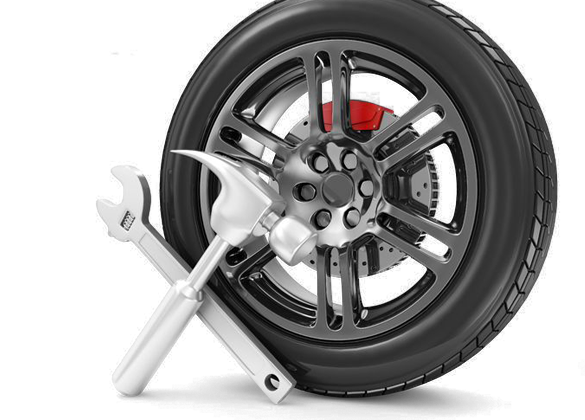
If you drive with damaged or worn tyres you risk being fined. You risk invalidating your car insurance policy and endangering lives too.
Tyre fitted to a motor vehicle or trailer must be fit for purpose and be free from any defects which might damage the road or endanger any person.
Tyres must be correctly inflated to the vehicle manufacturer's and the tyre manufacturer's recommended pressure.
Fit for purpose means that a tyre must:
- be compatible with the types of tyres fitted to the other wheels
- not have any lump, bulge or tear caused by separation or partial failure of the structure.
- not have a cut or tear in excess of 25mm or 10% of the sectional width of the tyre, whichever is the greater, and which is deep enough to reach the ply or cord.
- not have any part of the ply or cord exposed
A vehicle with any of these faults or with tyres of different nominal size or aspect ratio on the same axle is liable to fail an MOT test.
Duty to maintain
Tyres must be correctly inflated to the vehicle manufacturer's and the tyre manufacturer's recommended pressure. ('Run-flat' tyres partially inflated or in flat condition are permitted in certain circumstances.)
Tread depth
Tread depth must not fall below the legal minimum. The tread is that part of the tyre in contact with the road in normal conditions. The minimum depth of tread depends on the class of vehicle.
| Type of vehicle | Minimum tread depth |
| Passenger vehicles (other than motorcycles) for not more than 8 seated passengers Goods vehicles not exceeding 3,500kg max gross weight Light trailers not exceeding 3,500kg max gross weight |
At least 1.6mm throughout a continuous band in the centre 3/4 of the tread and around the entire circumference |
| Most vehicles larger than those listed above Motorcycles 50cc and over with or without sidecar |
At least 1.0mm throughout a continuous band across at least 3/4 of the breadth of the tread and around the entire circumference NB: In the quarter where the tread may be less than 1.0mm, the original tread pattern must be visible |
| Mopeds and motorcycles under 50cc | Original tread pattern must be visible |
THE PENALTIES
If you drive a vehicle fitted with an illegal or defective tyre on a road, a police officer may give you a Fixed Penalty Notice or, in Scotland, a Conditional Offer Notice.
A police officer has discretion not to issue a fixed penalty but to report the case for prosecution. In law, the driver and the owner (if different) are liable and one or both may be summonsed.
The maximum fine which a court can impose for using a vehicle with a defective tyre is £2,500 and three penalty points (£5,000 in the case of a goods vehicle or a vehicle constructed or adapted to carry more than eight passengers).
If a vehicle is fitted with more than one defective tyre, you can be summonsed for each tyre which is illegal. Disqualification is also possible in certain circumstances.
Our Reviews
Got the best tyres within my budget! Thanks to the staff at Plume Tyres for guiding me so well.
~JoshGood service. And what a friendly staff.
~Linda
I had a flat tyre and I had never been to a garage before! But the staff at Plume tyres, Hall Green Branch was very friendly and helpful. They quickly fixed my tyre in less than 30 minutes! It was amazing.
~KatieI went for an exhaust system replacement at their Shirley branch. Rather these guys told me that I could run this exhaust for another 6 months with just simple maintenance. They offer free checkups as well. Highly recommended for honest opinions and reliable services.
~KylieTheir online tyre booking service is so easy to use. I just entered my tyre size, tyre brand and details. Went to their garage in Shirley and the staff fitted them within just a few minutes. They didn’t ask me to pay until my tyres were fitted and I was completely satisfied. Now that’s something!
~George
Great service. I liked how quick the team was in fitting my tyres. Will visit again for sure.
~Lisa

